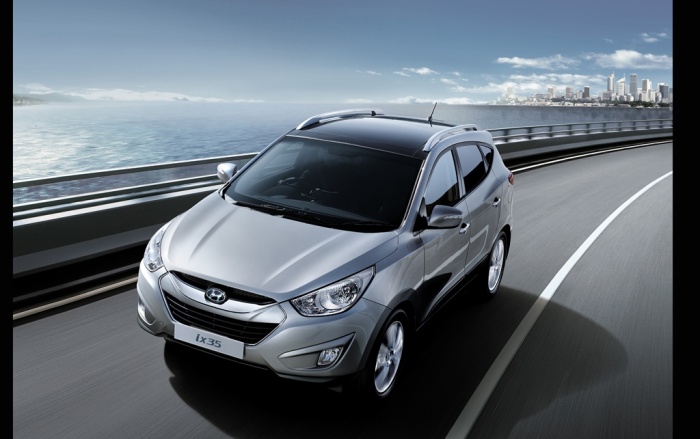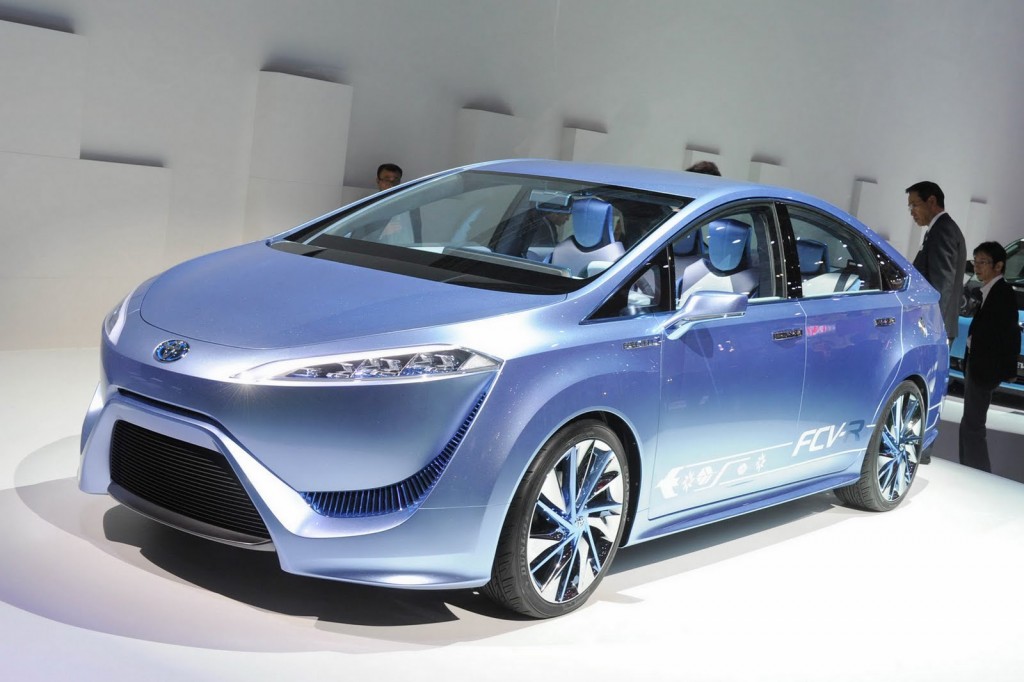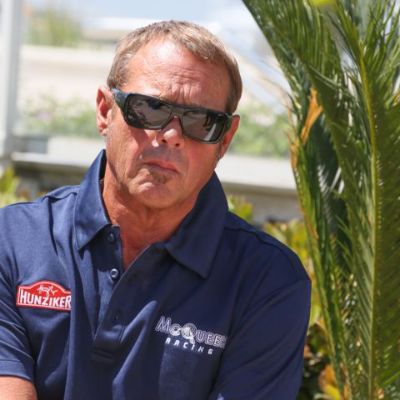List of Hydrogen Fuel Cell Car Manufacturer
Hydrogen fuel cell uses a chemical process to separate out the electrons in molecules of hydrogen gas which as a result power the car’s electric motor. Hydrogen fuel cell car uses hydrogen for its intended use. To run the electric motor of such cars, it covert the chemical energy of hydrogen to mechanical energy either by burning hydrogen in an internal combustion engine or by reacting hydrogen with oxygen. Hydrogen fuel does not exist naturally on earth. It is made with the help of methane or other fossil fuels which also can be produced with the use of wind, solar, or nuclear. Here are some list of hydrogen fuel cell car manufacturer :
- Toyota: The Toyota fuel cell vehicle concept is a practical concept as this company is planning to launch this around 2015 as an initiation in the development of hydrogen powered vehicles. The vehicle has a driving range of at least 500 km and refueling time as low as three minutes. It consists of two key characters i.e. the transformation of air into water as the system produces electricity, and the powerful acceleration enabled by the electric drive motor. Toyota FCV concept can be accommodate up to 4 occupants with light weight FC stack and two 70 MPa high-pressure hydrogen tanks in the specially designed body. Toyota FC stack has a power output density of 3 KW/L. Also the FC system is equipped with Toyota’s high efficiency boost converter with the reduction in size of motor and the number of fuel cells by increasing the voltage, offering an enhanced performance at reduced cost.
 Toyota FCV
Toyota FCV - Honda: Honda Motor Co. has high hopes for its hydrogen fuel cell car and its advanced technology to reduce tailpipe emission. Although the company agree with the fact that it will take few more years to get up the new technology among the consumers. Honda unveiled the 5-passenger car in Los Angeles auto show last week developed with the FCEV concept. Fuel cell cars use “stack” of cells that combine hydrogen with oxygen in the air to generate electricity. And can run five times longer than those electric cars. Honda’s FCX clarity is available in U.S. market which is available to lease. Honda & General Motors Co. in July reviled that they jointly would develop hydrogen fuel-cell vehicle system over next seven years in an effort to cut the cost of new technology.
- Mercedes: Mercedes-Benz F-Cell is one of the fuel-cell vehicle which is available in U.S. market which has been developed by Daimler AG. There are two different versions of Mercedes- Ben, the previous version was based on Mercedes-Benz A-Class and the new model is based on Mercedes-Benz B-Class. Both cars have been developed with the “Sandwich” design concept. Previous A-Class F-CELL was introduced in 2002 with a range of 100 miles (160 km) & speed of 82 mph (132 km/h) and current B-Class F-CELL has more powerful electric engine with 100 kW (134 horsepower) & a range of about 250 miles (402 km). This improvement in current B-Class has got possible due to its greater space for holding tanks of compressed hydrogen, higher storage pressure, as well as fuel cell advances technology.
 Mercedes-Benz F-Cell
Mercedes-Benz F-Cell - Hyundai: Focus on green, planet-saving tech of Hyundai took another step during 2010 with the hydrogen–electric version of Tucson which also is known as the ix35. A high pressure tank holds 12.3 pounds of hydrogen and which is routed through a fuel cell stack to generate electricity. An electric motor rated for 134hp and 221 lb-ft of torque provides the actual locomotion. It predicts a top speed of 99mph and maximum range of over 400 miles per tank of hydrogen. Here a move from permanent magnet to induction motors has been made which result a slight decrease in efficiency, but vast cost-saving.
 ix35
ix35 - Renault: The French automaker Renault has launched four electric vehicles, including Kangoo Z.E electric delivery van. These vans are fitted with a hydrogen fuel cell extender that doubles their driving range & service potential. The hydrogen range extenders contribute the range of more than 62 miles even under cold condition and mountainous roads. That Symbio FCell Modular fuel cell system ranges in size from 5kW to 20kW, reducing production cost and giving the fuel cell system of wider range of application. The stack is available in 5kW modules & a HyKangoo uses a 10kW stack and can hold 38 liters of clean-burning hydrogen.
 Kangoo Z.E
Kangoo Z.E - Volkswagen: The history of Fuel-cell research to Volkswagen started since 1997 development of a fuel-cell based Golf estate with 20kW output as a part of CAPRI project. Four years later, a Bora “HyPower” with double the capacity of its predecessor. Today’s Touran HyMotion with 80kW electric motor powered by fuel cell stack and battery combination. The drives in the Tiguan HyMotion, Caddy Maxi HyMotion, Audi Q5 HFC are supplied with electricity by fuel cell stacks in the 100kW class.
 Touran HyMotion
Touran HyMotion
Above mentioned are some manufacturers of “Hydrogen Fuel Cell car” among the renowned manufacturers around the world. These hydrogen fuel cars been seen as an exciting technology which helps to reduce dependency on oil. These cars were seen miserably expensive before but due to introduction of battery driven electric cars the cost of these hydrogen fuel-cell cars seems to be dropping. Era of hydrogen fuel cell cars will begin soon.
Tags






















